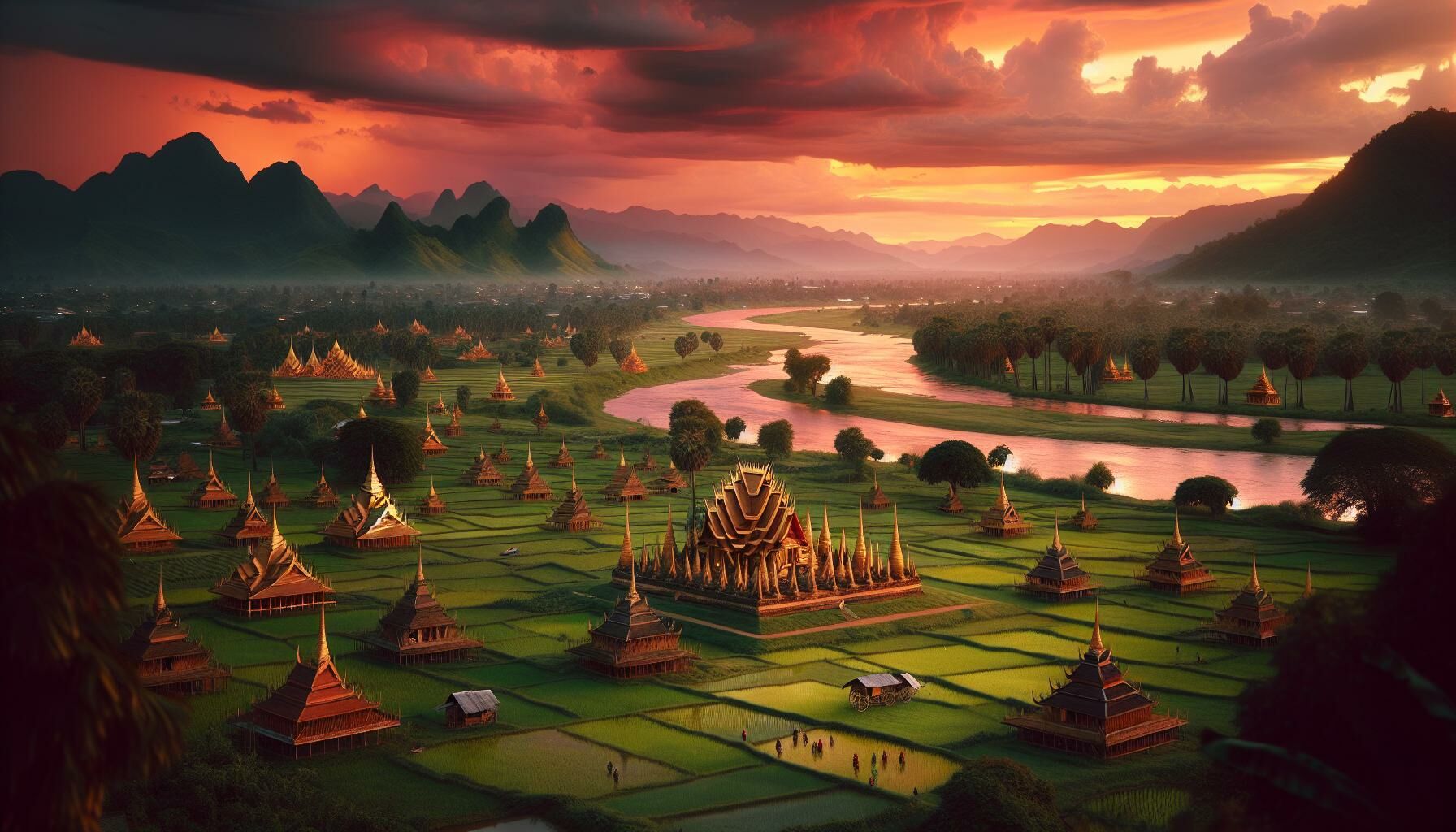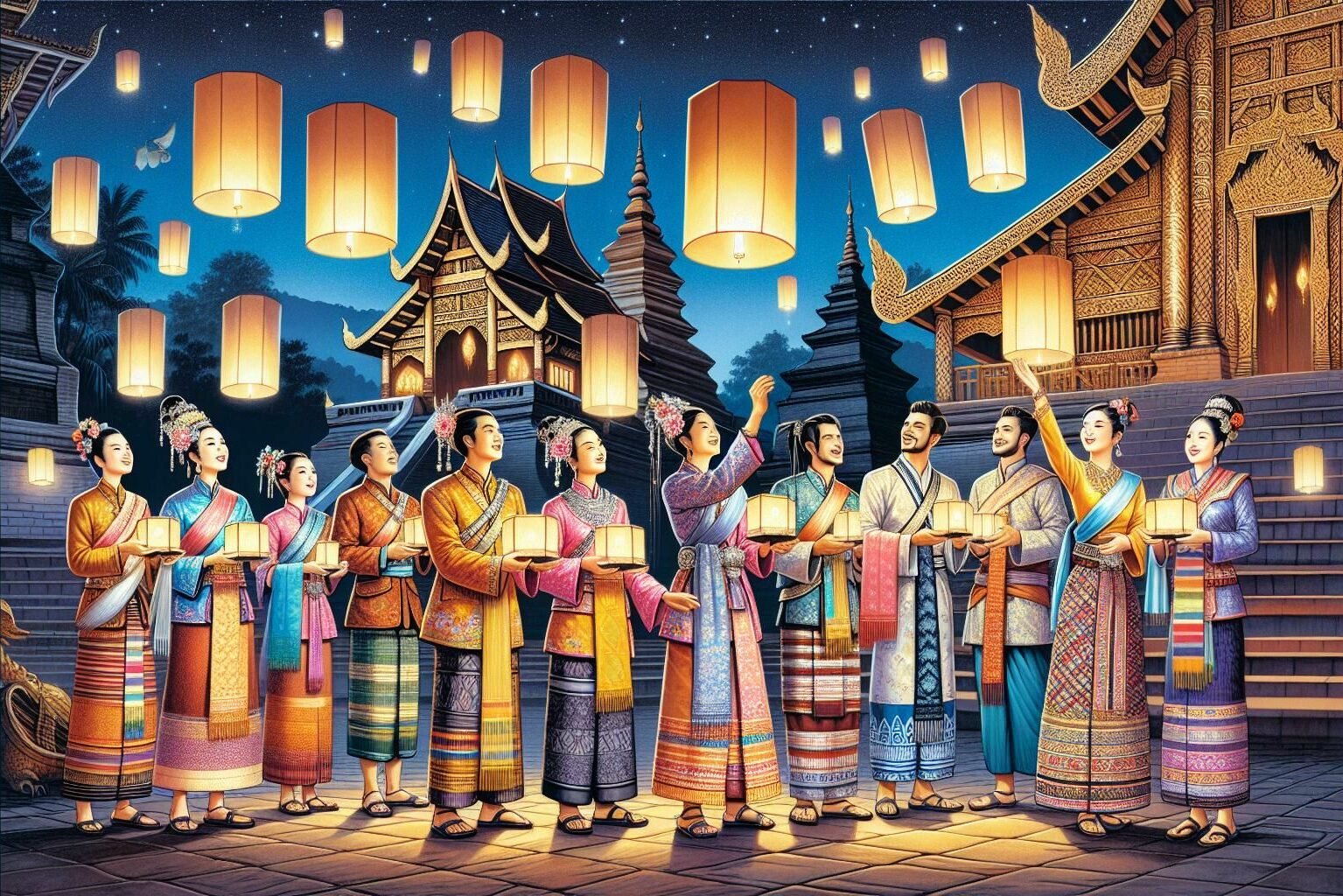The rise and fall of the Lanna kingdom

Nestled in the mountainous regions of Northern Thailand, the Lanna culture offers a unique blend of history, tradition, and cuisine that sets it apart from the rest of the country. The term “Lanna” refers to the ancient kingdom that once ruled this area, and its influence is still deeply felt today. From the distinct language spoken by its people to the rich culinary traditions, Lanna culture provides a fascinating glimpse into a lesser-known side of Thailand.
The rise of Lanna kingdom

Early establishment
The Lanna Kingdom began taking shape in the 13th century. Saen Phu, a crucial figure, founded the city of Chiang Saen in 1325 or 1328. This marked a significant step in consolidating power in northern Thai regions. The establishment set a strong foundation for future expansions and influence.
The founding of the Lanna Kingdom
King Mangrai founded Lanna in 1296 by establishing Chiang Mai as the capital. He united various principalities, creating a robust and influential kingdom. Chiang Mai was strategically located, facilitating trade and communication.
Influential Rulers
Several rulers left an indelible mark on Lanna’s history. Saen Phu, Mangrai’s grandson, succeeded his uncle, founding important cities and fortifying the kingdom. His son Kham Fu ruled briefly before being succeeded by Pha Yu, who further strengthened Chiang Mai. These rulers’ actions laid the groundwork for Lanna to thrive.
Political and military achievements
Lanna’s military and political manoeuvres were strategic. Mangrai’s alliances with neighbouring kingdoms fortified its position. The capture of Hariphunchai in 1292 highlighted Lanna’s military prowess. These achievements bolstered its influence in northern Thai regions and beyond.
Disunity and prosperity
Lanna experienced periods of both disunity and prosperity. Internal conflicts occasionally strained the kingdom, yet times of unification brought economic and cultural growth. Despite challenges, the kingdom sustained its regional influence through strategic leadership and adaptive policies.
Decline
Burmese rule
In the latter half of the 16th century, the kingdom faced invasion from the powerful Taungoo Dynasty of Burma. In 1558, Burmese forces overran the kingdom, integrating it as a tributary state. The Burmese installed vassal kings, who wielded limited autonomy. This period marked significant hardship for the Northern Thai community. The imposition of Burmese control disrupted local governance, culture, and economy. Periodic rebellions arose, but most were brutally suppressed, furthering the kingdom’s decline.
End of Burmese rule
By the late 18th century, Burmese authority over Lanna weakened. In 1775, during the Burmese-Siamese War, Lanna chiefs seized the opportunity. They joined forces with Siam to drive out the Burmese. This marked a pivotal point. Lanna reasserted some degree of autonomy, although it became a tributary state to Siam. The period under Burmese rule left lasting impacts on Lanna’s political structure and cultural landscape. This era signified both decline and resilience, shaping the Northern Thai identity.
The enduring legacy
How the Lanna heritage continues to shape life in Northern Thailand today
The influence of the kingdom still thrives in Northern Thailand. Intricately woven into social fabric, countless traditions reflect this heritage. Chiang Mai, once the Lanna capital, remains a cultural hub. Here, ancient temples, such as Wat Phra Singh, stand as testaments to historical craftsmanship. Local dialects, including Northern Thai (Kam Mueang), persist in daily communication. These linguistic elements bridge past and present, maintaining a distinct regional identity.
The impact of globalisation and modernization on Lanna’s culture
Globalisation and modernization exert both positive and negative impacts on Lanna’s culture. On the one hand, modern infrastructure and technology enhance living standards and connect Northern Thailand to the broader world. However, the influx of global influences sometimes dilutes traditional practices. While cultural preservation efforts are ongoing, balancing modernization with heritage conservation remains a challenge. Nevertheless, the resilient spirit of the Lanna people ensures that the core aspects of their unique culture continue to thrive amidst change.
Latest Thailand News
Follow The Thaiger on Google News:


























